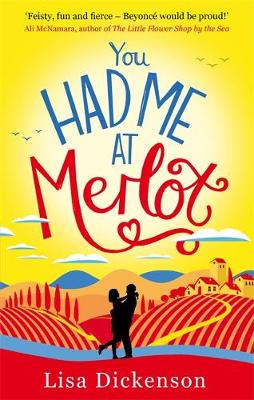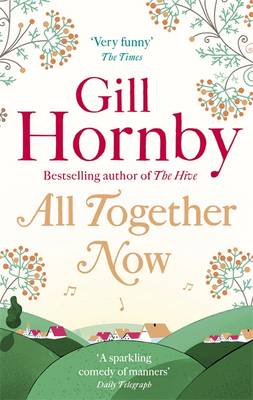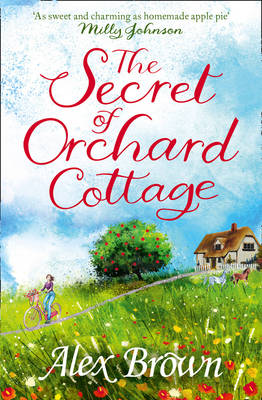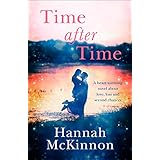Today I am pleased to welcome Susan Fletcher to my blog. Susan is the author of 'Let me tell you about a man I knew',
Lucy has written a letter which tells us, the reader, about the conception of the story:
A snowy, dark weekend in Amsterdam in 2013 – and I found myself standing before a painting from the Van Gogh Museum. It was an olive grove, late in the day. The trees were in full leaf; the grass was scorched to the colour of earth. It was painted, I read, during the artist’s stay at an asylum in rural Provence. I stood by this van Gogh painting, as if warming myself. As I did, a thought came to me: had van Gogh been alone as he painted this? For these olive groves could not have been painted from a distance, as some of his cornfields had been. I felt certain that his easel had been planted amongst these trees, that he’d left the safety of the asylum’s grounds in order to paint them. If so, how had this been allowed? A disturbed and self-harming patient, walking out on his own? As I stood there, I wondered if he’d been accompanied. And with that, I began to imagine it: a warden – modest, quiet, hard-working – by the artist’s side. At home, I began to research. There had, indeed, been a warden at the asylum in Provence – Charles Trabuc. But he’d also had a wife. And intriguingly, van Gogh had painted them both. It was on seeing Jeanne’s portrait – her high-necked dress as if being restrained, and the soft, sad kindness to her face - that I felt my new novel settle around me. I knew, with certainty, whose story I would tell. Whilst I’ve used van Gogh’s letters, art and numerous biographies as a basis for this novel, Jeanne’s tale is all my own. It is her year, as I imagine it – her year of knowing this extraordinary man and how it altered her.
Susan Fletcher, 2016
The publishers, Little Brown, have kindly agreed to let me share with my blog readers, the first chapter of the book, which I hope will encourage you to buy the book and continue this fantastic read. Enjoy ......
One
All morning she washes their clothes in the yard beneath the
lime tree, the metal tub by her side. She hunches on a stool.
She unfolds the wet clothes, rubs soap on them and scrubs
the cloth against the wooden board. Rinses. Scrubs. Rinses.
After this, she takes the clothes and hangs them – on a
rope, tied between the lime and the stone wall. She does
this with care, a hand’s width between each garment. Then
with a forked branch Jeanne hoists the clothes so they find
the high breeze and they sway above the flattened earth and
their own shadows and the stool and the metal tub.
She pauses. Looks across the fields.
The breeze finds the hems of her apron and skirt.
Briefly, Jeanne thinks of closing her eyes – to feel this
wind against her, to open her mouth as if drinking it. The
mistral, she knows, tastes cool. But this is not the mistral.
It’s a warm southerly wind – and Jeanne goes back to the
tub, grasps its two handles and lifts it until the tub rests
against her thigh and like this she hurries unevenly to the
west side of their house and the boundary wall where not
much will grow except dandelions and moss. She strains,
momentarily; then there’s a sudden clattering sound and
the tub is on its side and the grey water rushes across the
ground, runs the length of the wall. Jeanne stands, watches
this. When she was young, with every upturned pail she’d
imagine it – this water’s path, its second life. Where now?
What might it do? Jeanne would think of it – the roots, the
dark and dark-scented world beneath her feet where worms
and busy, velvety moles might feel this surge and pause in
their tunnelling, tunnels that took this water to streams or
the Rhône itself, or elsewhere. The sea? Could it find distant
lands? Princes and kingdoms? Or could it – Jeanne’s emptied
bucket – make new trees and flowers grow? Roses because of
She thinks this now, as the water sinks away. Roses that,
if pinned to her hair, would leave a rose-scented trail in her
wake. They grow against south-facing walls, in June and
July. She’s cupped them, inhaled.
When the tub is empty Jeanne props it against the wall to
drain. Walks back across the yard and goes inside.
They watch for the mistral in these parts. Mostly it’s an
autumnal wind – yet it came early last year, blew when the
chestnuts were still forming. It cracked glass. It threw back
every unlocked door so that the town banged on its hinges
and livestock kept to south-facing walls. Mistrau in the local
tongue. Wind of change, of shallow sleep. By November the
hills were powdered with snow and, in the fields, there was
sleet. Jeanne would see the bluish glow of Mont Gaussier in
the afternoons as she walked back through the olive trees,
clutching her shawl to her jaw.
‘Spring will come,’ Charles assured her. In March, green
shoots pushed up near the gate; April was the month of drip-
ping lanes and a frailer, younger bleating in the moving herd
of goats. It’s only now, in May, that there’s enough warmth
in the sun to dry clothes or walk without her woollen shawl
and so Jeanne moves from to room to room, unfastening the
windows that have been shut for so long and pushing them
wide so this new, warm air can find its way into the corners
Each window’s clasp cracks at her weight, like a seal.
Each view is known to her. From the parlour, Jeanne can
see the lane and the olive trees beyond. The kitchen, too,
faces the lane – but its second, smaller window looks into the
yard with its drying clothes, the lime tree, the wash-house
and a hen. She opens this window; the hen looks up.
She climbs the stairs to the bedroom – their shared room
with single beds – which sits above the parlour. She’s higher
now, can see more. More olive trees, in their rows; the eaves
of Peyron’s house, beside the hospital walls. If Jeanne leans
out of this window and looks right she can see Mont Gauss-
ier and Les Deux Trous and the five blowing cypress trees
and she used to do this in her early married days – lean out,
her hands on the sill and smiling, feeling the sun on her face.
Her best view south. Beneath her, the road to Saint-Rémy.
Sometimes she sees the tops of heads. The dusty spines of
A second bedroom. It looks into the lime tree – green,
And there’s a final room. Was it a cupboard, before they
lived here? Or even a room at all? It’s the highest part of the
house, reached by three more steps, which means it feels safe
to her – a little tucked-away land. It used to be the nurs-
ery. Here she cradled and fed and sang to each boy – and
this made it her best place in the world, for a time. How
they’d grasp her finger with all five of their own, how they
seemed like fish with their soft, soft sucking sounds and
round, reflecting eyes meant they seemed other-worldly to
her, made for elsewhere. Jeanne rarely comes here now. But
In the kitchen, Jeanne thinks this: he comes from Holland.
Dutch means he comes from there. Her father had had a faded
antique globe, the colour of parchment or yellowed bone.
By the fireside he’d turn it and say, What would you like to
see, mon chou? Anything. All of it. Lands where ebony came
from or where volcanoes were or big, white bears or where
camels trod through deserts with spices and rolls of silk on
their backs. Holland, he assured her, was a flat, flat place –
land claimed from the sea, which the sea wanted back. Dykes
and walls built against it. A blowing sky.
Papa. Two taps of his fingernail. On finding a country,
he’d tap it twice and say to her, See? Just there.
There must be better hospitals than Saint-Paul-de-
Mausole. There must be asylums (although Charles is less
fond of that word) where the director is well and the paint
doesn’t peel and the food’s more than haricot beans. Where
the fountain works, at least. Yet Salles is bringing this new
patient here? Jeanne knots her apron, looks out at the fading
light and can only suppose that Salles thinks the empty
rooms and overgrown garden at Saint-Paul will suit this
She washes the plates, dries them. She slows in her drying,
fingers the stem of a dark-pink bud. In the rue de l’Agneau,
there was jasmine; she’d make crowns of it, walk home like a
queen. Or she’d press herself into its soft, white curtain with
her arms held out, embracing it – and she’d do this still, if
Dutch. She washes, dries.
When she glances up, dusk has deepened into night.
Thank you to the publishers, Little Brown and the author, Susan Fletcher, for visiting my blog today.











